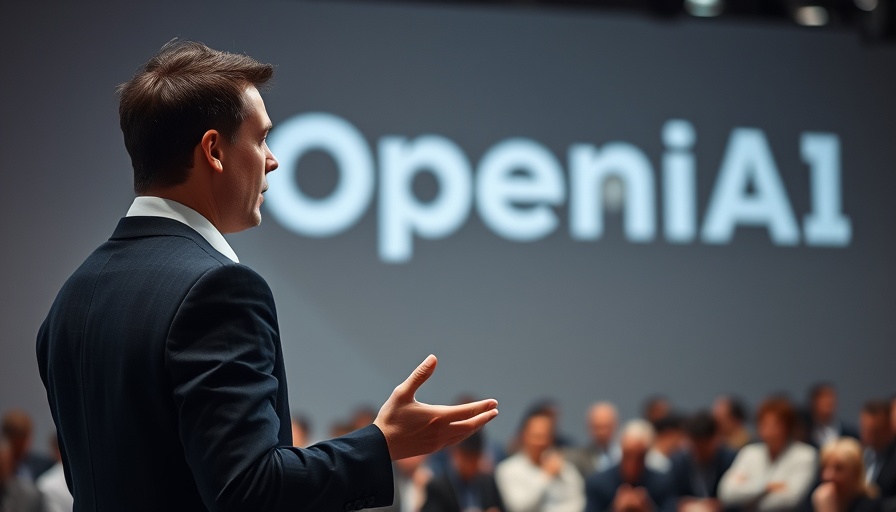
Understanding AI's Privacy Gaps
As artificial intelligence tools like ChatGPT become more integrated into daily life, the demand for privacy and confidentiality grows more urgent. OpenAI's CEO, Sam Altman, recently highlighted that using AI as an emotional support mechanism might be risky due to the lack of legal protections that exist in traditional therapeutic settings. When individuals communicate sensitive information with a therapist, they enjoy the safeguard of doctor-patient confidentiality—such legal protections do not extend to interactions with AI.
The Growing Reliance on AI for Mental Health
Many users, particularly younger demographics, are turning to ChatGPT for advice on personal matters, from mental health queries to relationship dilemmas. Altman warned against this reliance, emphasizing that the legal implications could have serious consequences if a case were to go to court. In such scenarios, OpenAI might be compelled to disclose user interactions, compromising the user's privacy.
The Legal Landscape: Shortcomings and Concerns
Despite the myriad ways people incorporate AI into their lives, the legislative framework surrounding AI privacy is lagging behind technology. This mismatch can leave users vulnerable. For example, recent events such as the Supreme Court's overturning of Roe v. Wade led many individuals to switch to platforms with robust privacy safeguards, fearing implications for their health data. The hesitation is justified: as Altman argues, "it’s totally fair for people to want clear legal privacy rules before trusting AI with their most personal thoughts."
Public Perception: Navigating the Ambiguities
What do professionals and entrepreneurs think about trusting AI with confidential matters? Many remain skeptical. In a conversation on a podcast, both Altman and the host expressed concerns about the lack of confidentiality assurances in AI applications like ChatGPT. This apprehension reflects the broader anxiety surrounding AI's role in society: can we trust these algorithms with personal insights? Moreover, the growing interest in AI news and trends implies users are critically engaging with these emerging technologies.
AI's Place in Our World: Navigating Ethical Dilemmas
As AI continues to evolve, the ethical questions surrounding its use intensify. Should companies like OpenAI develop systems that mimic the confidentiality standards of human professionals? Is it acceptable for users to share personal information without a legal safety net? These discussions are essential as we explore AI's place in mental health, emphasizing the critical need for policy changes that protect user privacy.
Looking Ahead: What Users Should Consider
Before diving deeper into utilizing AI tools, users are encouraged to consider their privacy and share information judiciously. As AI technology advances, so must our expectations for the protections afforded to users. For now, professionals and entrepreneurs alike may find it wise to avoid sharing sensitive information with AI, opting instead for traditional avenues that provide legal confidentiality until clarity and protection in AI usage is established.
As AI continues to be integrated into daily life, your thoughts on these privacy concerns matter. Should AI developers create stricter privacy protocols? Share your opinion in the comments!
 Add Row
Add Row  Add
Add 




Write A Comment